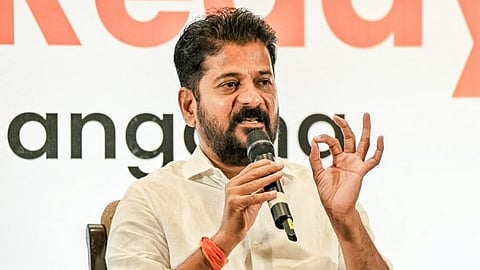

Why do Telangana parents want CM to reconsider mandatory Telugu policy in schools?
Some parents wrote to the CM, who also heads the Education Department, saying that making Telugu a compulsory second language could cause problems during Board exams for students not from the state.
Parents in Telangana expressed concerns over making Telugu language learning mandatory at all schools in the state, urging the state government to reconsider the decision. They argued that instead, students must be given an option to choose the language they want to learn.
In an email to the Chief Minister's Office and the Education Department on Saturday, March 22, a parent named Runa Nandy wrote that making Telugu a compulsory second language could cause problems during Board exams, especially for families who constantly relocate to various states, Telangana Today reports.
She stated, “For instance, students entering Class IX with no prior Telugu instruction would face immense pressure to achieve proficiency and pass the board exam in Telugu. It is hard to imagine how these students can master the language sufficiently to compete with peers who have studied Telugu since Class I.”
Nandy stated that, just like her, many other parents would prefer if their children were given the option to study Hindi as a second language. She urged CM Revanth Reddy, who also runs the Telangana Department of Education, to rethink implementing the mandatory Telugu language policy.
The Telangana State government has issued an order making Telugu a compulsory subject for students in Classes IX and X in Central Board of Secondary Education (CBSE), Indian Certificate of Secondary Education (ICSE), International Baccalaureate (IB), and other Board-affiliated schools in Telangana.
According to a document released by Education Department Secretary Dr Yogita Rana, Telugu will be a compulsory subject for Class IX and Class X pupils beginning with the academic year 2025-26 and 2026-27, respectively.
Telugu would be taught in a simpler fashion using Vennela, a simplified textbook, to pique the interest of non-Telugu native speakers in the language.
